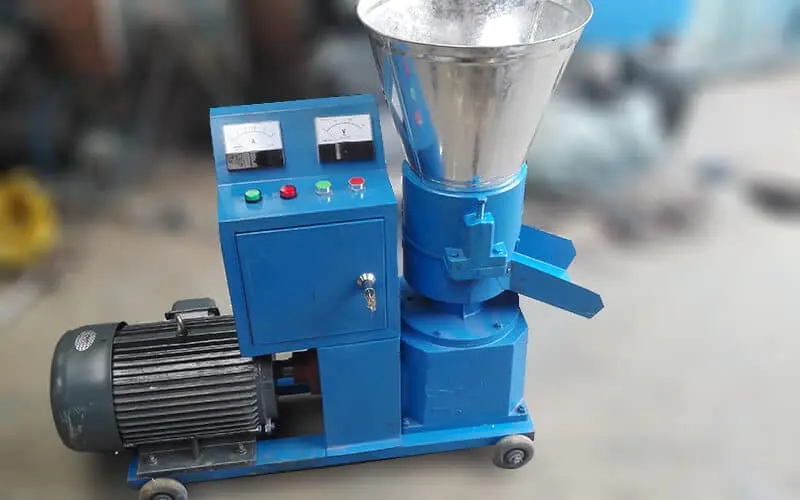
| Price | 500-6000 USD |
| Delivery Time | 10-15 days |
| Available | In Stock |
| Package | In Free Fumigation Wood Box |
| Guarantee | 1 Year |
| Shipping | By Sea or By Air |
| Payment Method | Wire Transfer or Western Union |
| Brand | Victor |
VTKLP Grass Pellet Machine: 0.1-2T/H
| Production Output | 0.1-2 t/h |
| Power | Electric motor or diesel engine |
| Voltage | 110-415V |
| Raw Materials | grass, hay, alfalfa, straw, cereal, corn, wheat, barley flour, soybean, oil seed meal/cake, edible leaf, fish meal, bone powder, etc |
| Type | flat die type |
| Final product size | 3-10 mm |
| Application | feed pellet producing, feed pellet industry |
| Used For | animal feed production, poultry feed production, fuel pellet production |
Electric vs Diesel Grass pellet mill specifications
electric grass pellet machine
| Model | Electric Power(kw) | Output(kg/h) | Weight(kg) |
| VTKLP-125 | 3 | 50-80 | 80 |
| VTKLP-150 | 4 | 100-150 | 110 |
| VTKLP-210 | 7.5 | 200-400 | 210 |
| VTKLP-230 | 11 | 300-500 | 280 |
| VTKLP-260 | 15 | 500-700 | 300 |
| VTKLP-300 | 18.5 | 700-900 | 500 |
| VTKLP-360 | 22 | 900-1200 | 700 |
| VTKLP-400 | 30-37 | 1200-1500 | 900 |
diesel engine grass pellet machine
| Model | Diesel Engine Power(HP) | Output(kg/h) | Weight(kg) |
| VTKLP-125 | 4 | 50-80 | 100 |
| VTKLP-150 | 5 | 100-150 | 150 |
| VTKLP-210 | 10 | 200-400 | 260 |
| VTKLP-230 | 15 | 300-500 | 350 |
| VTKLP-260 | 20 | 500-700 | 420 |
| VTKLP-300 | 25 | 700-900 | 650 |
| VTKLP-360 | 30 | 900-1200 | 900 |
| VTKLP-400 | 40-50 | 1200-1500 | 1200 |
Grass Pelletizing video: 10mm Feed/Fuel
What is a Grass Pellet Machine?
A grass pellet machine is made just for light, fibrous grasses where the main goals are energy and bedding. This feed pellet machine turns loose clippings and dried grasses into dense pellets that are easy to store and move around.
The workable moisture window for grass raw material is 12% to 15%. To get around springy fibers, the die needs to be tuned with a higher compression ratio than wood.
This grass pellet mill is of the highest quality and works great. It can make pellets that are 2mm to 10mm big. The new type now has a metal structure that is thicker and stronger.
This means it can last longer and won’t break. Rollers and dies that are stronger can make pellets that are better and easier for sheep, pigs, and other animals to eat. Animals can be much healthier if they eat grass pellets. You can use alfalfa, straw, grains, and dry grasses as raw materials.
The bearings can last longer and work better. Strong gray iron is used in the gear box. This makes it quiet and works well. The grass pellet mill is small, cheap, and works well, and it makes a lot of money. It’s simple to use, makes a lot of pellets quickly, and saves you time and work.
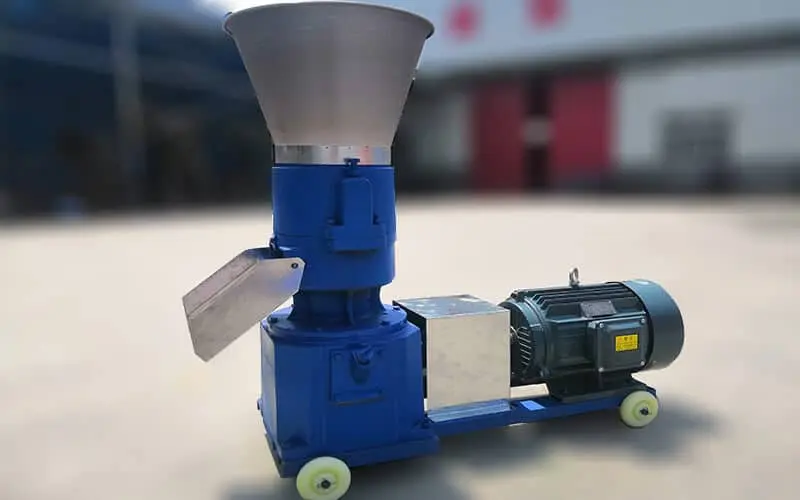
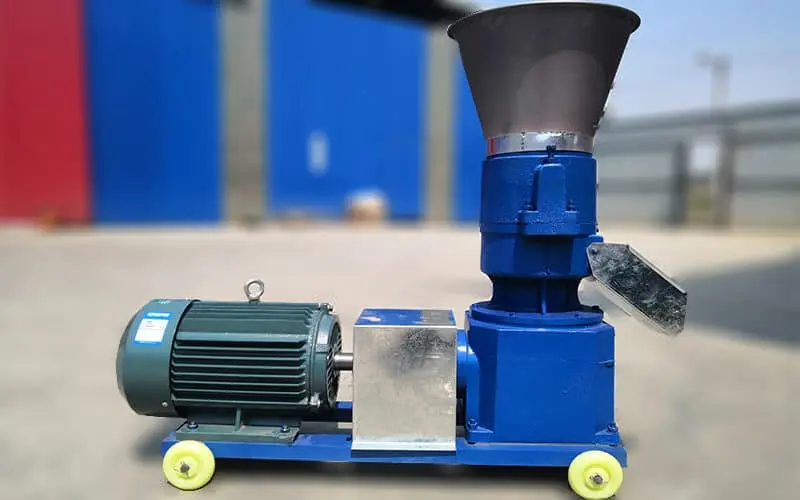
What Can Grass Pellet Machine Do?
One of the best things about making grass pellets is that it can be used in many different ways. The finished product can be used for a number of useful things on a modern farm.
Grass pellets burn evenly in farm heaters and small boilers. When used as bedding, they also cut down on barn dust. The tight stacking of the dense pellets means fewer trips to move them and less runoff than with loose straw.
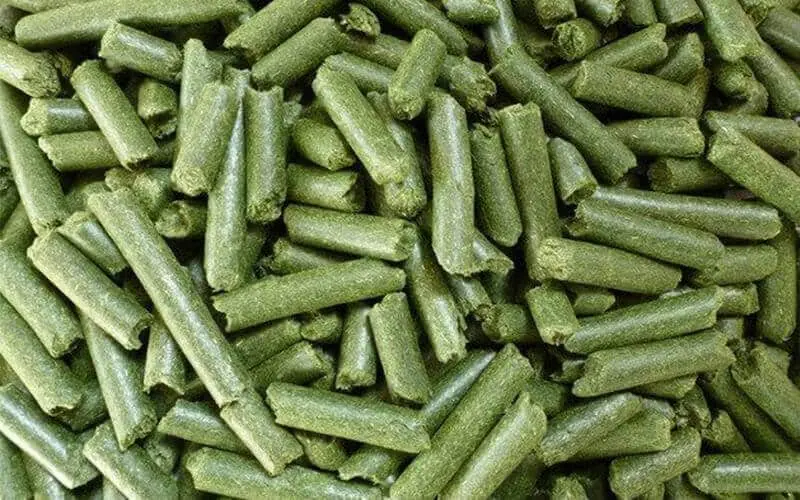
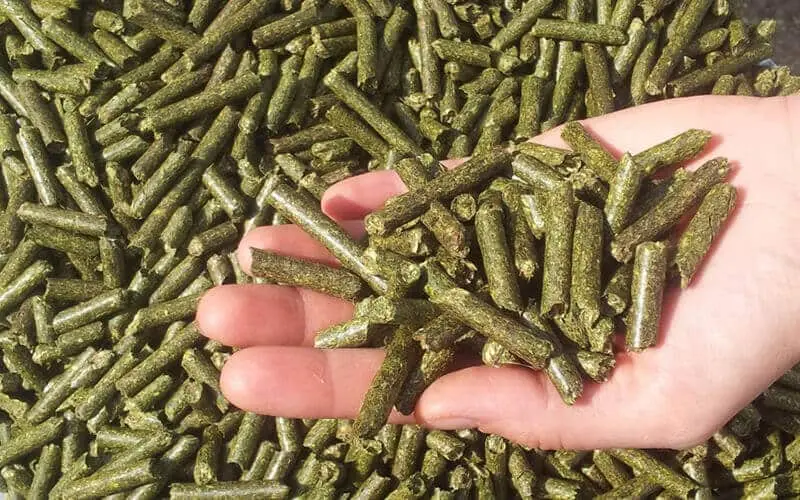
application of grass pellets
making pellet for feed
Grass pellets make an excellent high-fiber supplement for livestock feed. They stay clean, pack more nutrients into a smaller volume, and store much more easily than plain straw.
To create a basic grass feed pellet ration, you can follow this general guideline:
- Mix 55-60% herbs (like dried hay or straw).
- Add 35-40% grains (corn, sorghum, oats, or wheat bran).
- Include 1-3% minerals and vitamins.
- Then, use a grass pelletizer to press the mix into feed granules.
making pellet for fuel
Grass is lighter than wood. This characteristic often means the pellet mill components, like the die and rollers, experience less abrasive wear. The machine can also sometimes run faster and make more granules each hour.
Grass is a highly renewable raw material that costs less and is often easier to source than wood. The resulting pellets can be used in home heaters, factory boilers, and power plants. Working with wheat, rice, or corn straw? Compare options on our straw pellet machine sale price page.

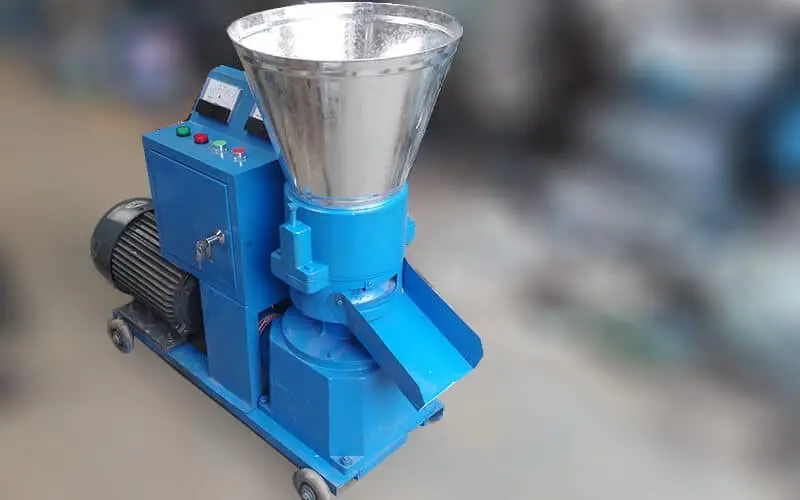
What Kind of Grass Can It Use?
There are many kinds of grass that you can use in machines that make pellets. Timothy Grass and Orchard Grass are two types of field grasses that farmers often use. Switchgrass and Bermuda Grass are two fast-growing plants that make great biomass fuel. This is the most important thing you will learn about how to make pellets.
You cannot feed fresh, long grass directly into the machine, as it will jam and create a useless mush. You need to prepare the grass at first. First, it must be dried to the correct moisture level. Second, it must be chopped or ground into small, even pieces with a separate hammer mill. Processing baled hay specifically? See our hay pellet mill for sale for models and specs.
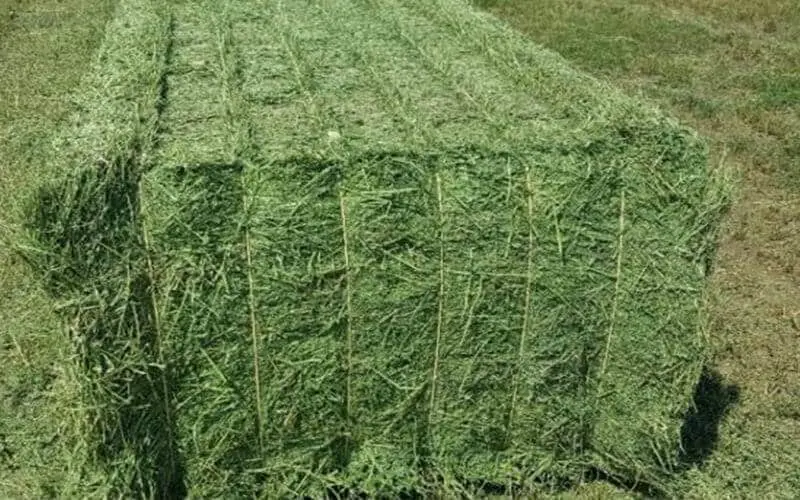
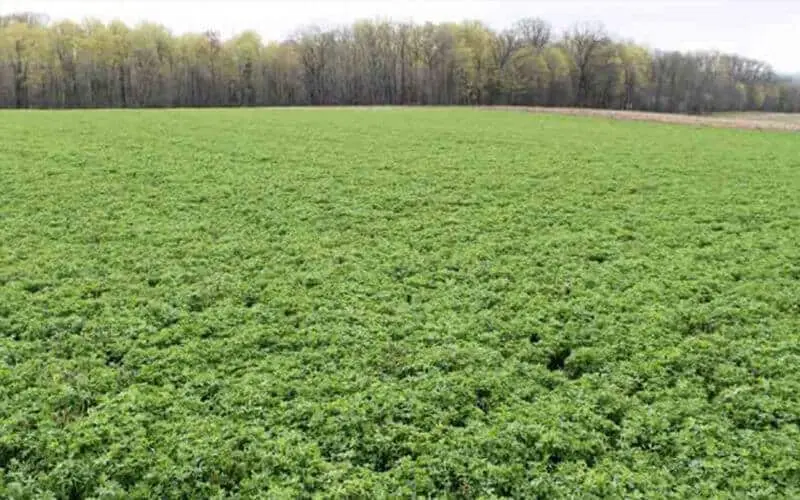
How to Choose the Right Grass Pellet Machine
You need to make sure that the machine works with the way grass behaves as a raw material. Choose models with a force feeder or anti-bridging agitators in the hopper. These stop the light, fibrous stuff from getting stuck. You should also look for dies and rollers that have hardened.
Electric drives are good for workshops, but PTO or diesel models are better for working outdoors. You should ask the sellers for the compression ratio of the die that is specific to grass, which is usually higher than for wood. Also, ask what hammer-mill screen sizes are best for your desired pellet diameter, such as 3 to 6 mm for fuel pellets.
Making Grass Pellets: A Four-Step Guide
The manufacturing process for grass pellets involves four distinct steps.
- Dry to 12–15% Moisture: You must dry your grass to a moisture content between 12% and 15%.
- Pre-Grind the Material: Use a hammer mill with a 3–6 mm screen to pre-grind the grass. This avoids long fibers that can bridge in the hopper.
- Press Through the Die: Feed the material into the pelletizing chamber. The machine will press it through a grass-rated ring die or flat die.
- Cool and Screen: The hot pellets must be cooled to become hard. After pelletizing cooling, you should screen them to remove fines, which can be recycled into the next batch.
Conclusion
A grass pellet machine is a helpful tool. It turns big pieces of grass into small, dense pellets that can be used as bedding for animals or as fuel. The right choice for you will depend on how much grass you have and how you get your power. Keep in mind that you need to dry and grind the grass the right way before you can make grass pellets.

